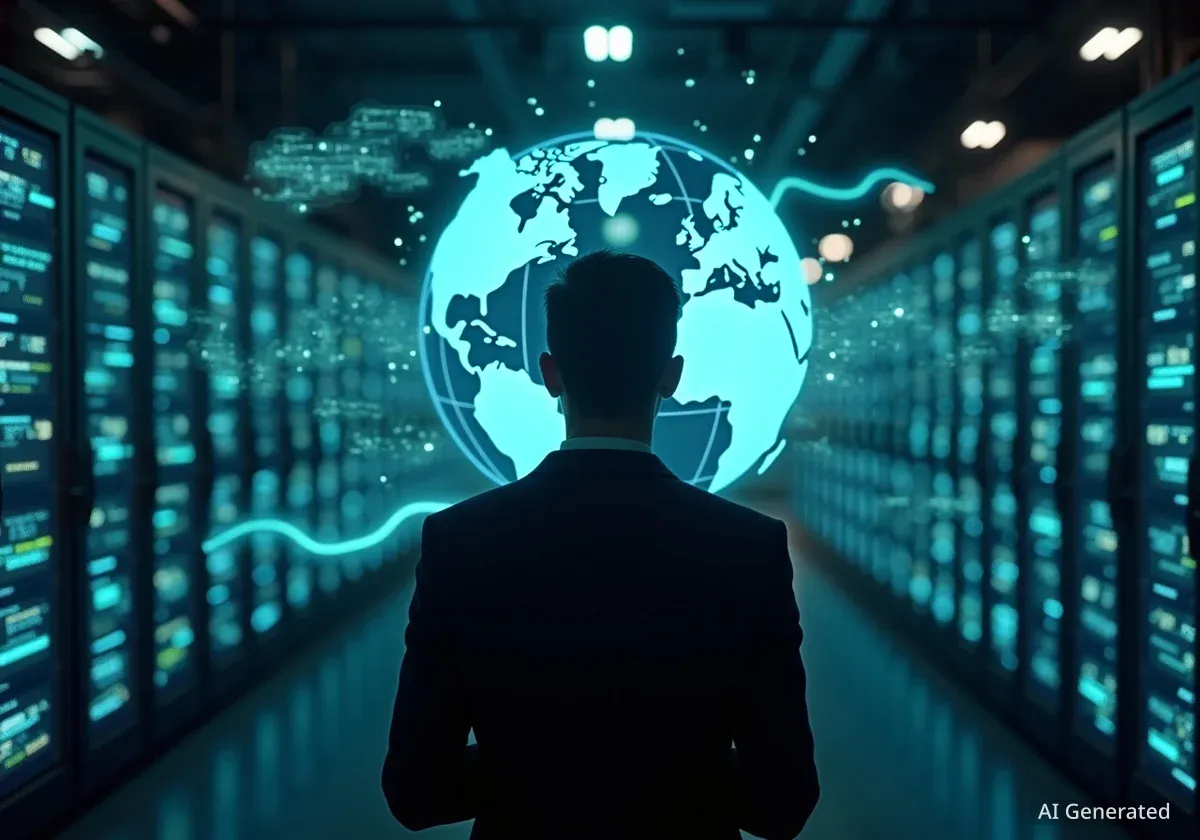Professor Arthur GO Mutambara asserts that artificial intelligence is essential for achieving the United Nations' 2030 Sustainable Development Goals. In a new analysis, he highlights AI's potential to accelerate progress while warning that without careful global governance, the technology could significantly worsen economic and social divides between nations.
Mutambara calls for a unified international framework to ensure AI is developed and deployed equitably, benefiting all of humanity rather than a select few. The central argument is that AI must be a tool for shared prosperity, not a driver of a new form of digital colonialism.
Key Takeaways
- Professor Arthur GO Mutambara argues AI is critical for meeting the UN's 2030 Sustainable Development Goals (SDGs).
- Without proper governance, AI could deepen global inequality by concentrating power and wealth in developed nations.
- A global framework for policy, governance, and regulation is needed to ensure equitable AI development.
- The risk involves poorer regions being exploited for data and resources while richer countries reap the primary benefits.
- The goal is to align AI's trajectory with the common good, preventing it from entrenching existing global disparities.
The Dual Role of AI in Global Development
Artificial intelligence presents a powerful but complex tool for global development. On one hand, it has the potential to act as a significant enabler for the 17 Sustainable Development Goals established by the United Nations. These goals address critical challenges such as poverty, hunger, health, education, and climate action.
According to Mutambara's analysis, AI can optimize resource management, improve healthcare diagnostics, personalize education, and create more efficient energy grids. For example, AI-powered agricultural systems can help increase crop yields to combat hunger (SDG 2), while machine learning models can predict disease outbreaks to improve public health (SDG 3).
What are the UN Sustainable Development Goals?
The 2030 Agenda for Sustainable Development, adopted by all United Nations Member States in 2015, provides a shared blueprint for peace and prosperity for people and the planet. At its heart are the 17 Sustainable Development Goals (SDGs), which are an urgent call for action by all countries in a global partnership.
However, this potential is matched by considerable risk. The development and deployment of advanced AI systems are currently dominated by a small number of technologically advanced countries and corporations. This concentration of power creates a precarious dynamic for the rest of the world.
The Risk of Deepening Global Inequality
The primary concern raised by Professor Mutambara is that AI could become a new engine of inequality. He warns that if the current trajectory continues without intervention, AI will likely concentrate wealth and technological power in already rich nations while potentially exploiting the resources of developing regions.
This scenario could manifest in several ways:
- Data Exploitation: Developing countries could become sources of raw data used to train AI models, with little to no economic benefit returning to them.
- Economic Disruption: Automation driven by AI could displace jobs in emerging economies before they have a chance to build resilient, diversified economies.
- Technological Dependence: Nations without their own AI infrastructure could become entirely dependent on foreign technology, limiting their sovereignty and economic self-determination.
The Digital Divide by the Numbers
According to the International Telecommunication Union (ITU), an estimated 2.6 billion people remained offline in 2023. This digital divide highlights the foundational inequality that could be exacerbated by advanced technologies like AI, as access to basic internet is a prerequisite for participating in the AI economy.
This warning echoes sentiments from global leaders. UN Secretary-General António Guterres has repeatedly cautioned against the dangers of unchecked technological advancement.
"Technology should be a force for good, bridging divides and fostering shared progress. We must ensure it does not become a tool to entrench existing inequalities or create new ones."
Mutambara argues that without a proactive strategy, the world risks creating a two-tiered system: one of AI producers and one of AI consumers, mirroring historical patterns of economic exploitation.
A Call for Global Cooperation and Regulation
To counteract these risks, Mutambara advocates for a multi-layered approach centered on international collaboration. He proposes that a strategic policy, governance, and regulation framework is essential to steer AI development toward equitable outcomes. This framework would need to be established through global cooperation and reinforced by regional integration efforts.
The goal is not to stifle innovation but to create rules that ensure the benefits of AI are distributed fairly. Key components of such a framework would include:
- International Standards: Establishing shared norms for AI ethics, data privacy, and transparency.
- Capacity Building: Investing in education and infrastructure to help developing nations build their own AI capabilities.
- Fair Data Governance: Creating policies that ensure communities and countries benefit from the data they generate.
- Inclusive Development: Prioritizing AI applications that directly address the Sustainable Development Goals and serve the most vulnerable populations.
This requires a concerted effort from governments, private companies, academia, and civil society. Mutambara emphasizes that regional bodies, such as the African Union or ASEAN, have a critical role to play in adapting global standards to local contexts and promoting collective bargaining power.
Ensuring AI Serves the Common Good
Ultimately, the core message is a call to action. The development of artificial intelligence is at a critical juncture where its path can be intentionally shaped. Leaving its development solely to market forces and the interests of a few powerful actors is a recipe for greater global instability and inequality.
Professor Mutambara's position is clear: AI must be guided by a commitment to the common good. This means prioritizing human well-being, social equity, and environmental sustainability over pure technological advancement or profit maximization.
The challenge is to build a global consensus around this vision. It requires moving beyond national interests to recognize that in an interconnected world, technological progress that leaves billions behind is not true progress at all. The coming years will be decisive in determining whether AI fulfills its promise as an enabler of the UN's goals or becomes a catalyst for a more divided world.





